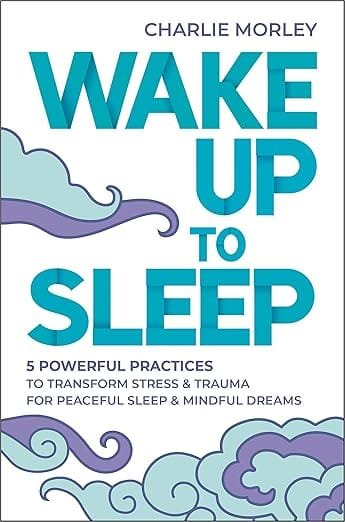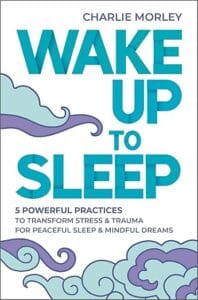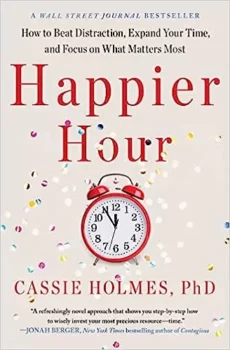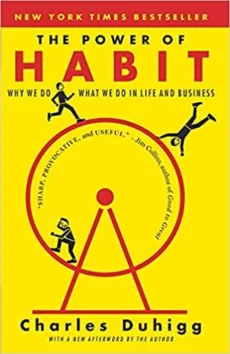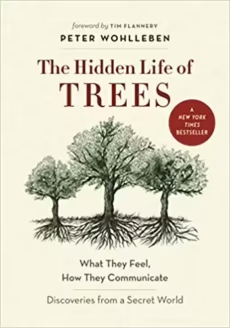Description
Discover the secrets to restful sleep and vibrant dreams with Wake Up to Sleep by Charlie Morley. This insightful guide blends mindfulness techniques with dreamwork practices to help you conquer insomnia and enhance your nightly rest. With practical exercises and profound wisdom, this book empowers you to reclaim your sleep, awaken your inner creativity, and tap into the healing power of your dreams. Perfect for anyone seeking a deeper understanding of their sleep patterns and looking to improve their overall
Waking Up to Sleep: Exploring the Transformative Power of Sleep and Dreams by Charlie Morley
Charlie Morley is a distinguished author and educator whose work in sleep and dreams has garnered considerable recognition. With a background in psychology and a deep interest in the ancient practices of mindfulness and consciousness, Morley has emerged as a leading voice in exploring lucid dreaming and its potential for personal development. His journey into this intriguing field began with a series of transformative experiences in his own life, which led him to study various traditions, including Tibetan Buddhism, where he encountered the practice of becoming consciously aware of dreams.
Morley’s philosophy centers around the idea that sleep is not merely a passive state of rest but an active space for personal growth and self-discovery. He posits that through heightened awareness during sleep, individuals can unlock a treasure trove of insights that aid in emotional healing and creativity. By integrating modern psychological theories with time-honored wisdom, Morley has crafted a unique approach that resonates with a diverse audience.
His teachings emphasize the importance of understanding and harnessing the multifaceted nature of our dreams, portraying sleep as a vital component of our well-being and spiritual evolution.
In his book, ‘Waking Up to Sleep,’ Morley invites readers to explore these concepts in depth, providing practical tools and meditative practices designed to awaken a deeper awareness within the dream state. His teachings cater not only to those who have an interest in lucid dreaming but also to anyone looking to enhance their quality of sleep and overall mental health. By bridging ancient traditions with contemporary insights, Morley’s work serves as an essential guide for individuals eager to embark on a journey of self-exploration through the transformative power of sleep and dreams.
Understanding the Science of Sleep and Dreams
Sleep is a complex physiological process that plays a vital role in human health and well-being. It is characterized by various distinct stages, primarily categorized into non-rapid eye movement (non-REM) and rapid eye movement (REM) sleep.
Non-REM sleep comprises three stages, each representing a deeper level of rest, while REM sleep is associated with vivid dreams and heightened brain activity. Research indicates that these stages are crucial for restorative functions, including physical health, cognitive performance, and emotional regulation.
The pattern of sleep cycles usually follows a predictable rhythm, lasting approximately 90 minutes, during which an individual transitions through the various stages multiple times throughout the night.
Adequate amounts of REM sleep are particularly important; it is believed that this stage facilitates memory consolidation, creative problem-solving, and emotional processing. During REM sleep, the brain’s neural pathways are activated, enabling the synthesis of new ideas and contributions to overall mental flexibility.
Dreams, arising primarily during the REM stage, serve multiple purposes in our waking lives.
Although the exact function of dreams remains a topic of scientific inquiry, recent studies suggest that they play an essential role in emotional regulation by allowing individuals to process feelings and experiences. By encountering various scenarios in dreams, individuals may confront fears or rehearse social situations, contributing to their emotional resilience and adaptability.
Furthermore, there is growing evidence linking sleep quality to mental health outcomes. Individuals who experience chronic sleep disturbances are at an increased risk of developing mood disorders, anxiety, and cognitive impairments. Conversely, obtaining sufficient restorative sleep can enhance creativity, improve concentration, and foster emotional stability, making it a crucial aspect of personal growth. Understanding the science of sleep and dreams highlights the importance of cultivating healthy sleep habits for enhanced well-being.
Practical Techniques for Improving Sleep and Dream Practices
Enhancing sleep quality and fostering a rich dream experience is a topic of great interest, especially among those keen on exploring the transformative aspects of sleep. Charlie Morley’s book presents a variety of practical strategies designed to improve both sleep hygiene and lucid dreaming. Implementing these techniques can lead to more restorative sleep and a deeper connection with one’s dreams.
To begin, establishing good sleep hygiene is essential. This includes maintaining a consistent sleep schedule, where one goes to bed and wakes up at the same time daily. Such a routine can help regulate the body’s internal clock, leading to improved sleep quality over time.
Additionally, creating a restful environment, one that is cool, dark, and quiet, can significantly enhance the ability to fall asleep and stay asleep.
Limiting exposure to screens and blue light in the evening is crucial, as it allows melatonin production to flourish, better preparing the body for sleep.
Meditation and mindfulness practices can also play a significant role in improving sleep. Studies suggest that engaging in mindfulness meditation before bedtime can reduce stress and anxiety, paving the way for a peaceful night’s rest. By focusing on the present moment, individuals can clear their minds and cultivate a tranquil state conducive to sleep.
Maintaining a dream journal is another effective technique highlighted by Morley. Recording dreams upon waking helps individuals remember them more vividly and can facilitate involvement with the dream content. Over time, patterns may emerge that allow one to recognize and become aware within their dreams, a cornerstone of lucid dreaming. Along with journaling, visualization techniques can be powerful tools, empowering dreamers to direct and shape their experiences. By imagining specific scenarios or outcomes before sleep, one can enhance their ability to influence the narrative of their dreams.
The Role of Sleep in Personal Transformation
Understanding the profound impact of sleep and dreams on personal transformation can be a life-changing experience. Charlie Morley’s teachings have illuminated the path for many individuals seeking to harness the power of their subconscious. By engaging with dreams, practitioners can tap into a reservoir of insights that lead to self-discovery and emotional healing. Numerous testimonials highlight the transformative experiences of those who actively participated in dreamwork inspired by Morley’s methodologies.
For example, one individual shared how lucid dreaming allowed them to confront and resolve longstanding fears that had stymied their personal growth. Through the practice of conscious dreaming, they were able to interact with dream characters that represented these fears, ultimately leading to a release of pent-up emotions. This individual reported a newfound clarity and confidence in waking life, demonstrating the invaluable role that dream exploration can play in emotional healing.
Another user of Morley’s techniques discussed the surprising connections that emerged between their dreams and daily experiences.
They noted that insights gained from dream analysis often provided clearer perspectives on personal relationships and career decisions. By learning to interpret dreams, they not only enhanced their self-awareness but also cultivated a deeper understanding of their interactions with others. This capacity for reflection emphasizes the relationship between sleep, unconscious emotions, and personal clarity.
Ultimately, the journey of Waking Up To Sleep is not merely about enhancing one’s dreaming practice; it embodies a holistic approach to self-understanding and personal evolution.
As individuals gain insight into their innermost thoughts and feelings through dreams, they can foster stronger connections to themselves and their surroundings.
Embracing this transformative journey through conscious dreaming encourages others to explore their potential, thereby enriching their lives and promoting a more profound sense of fulfillment.
